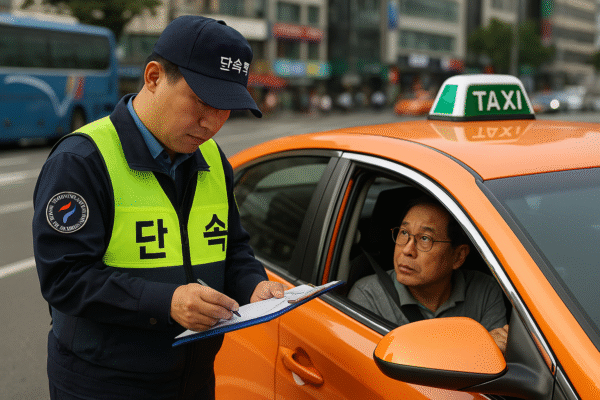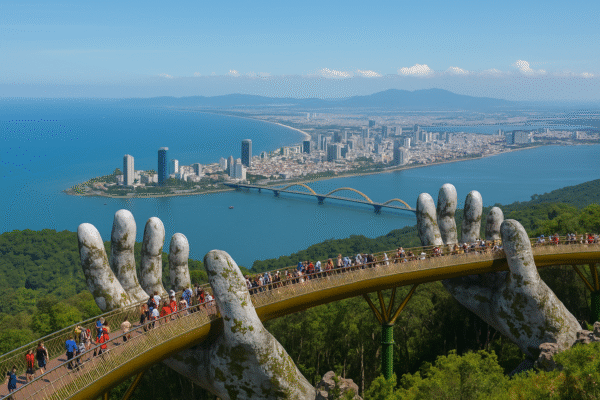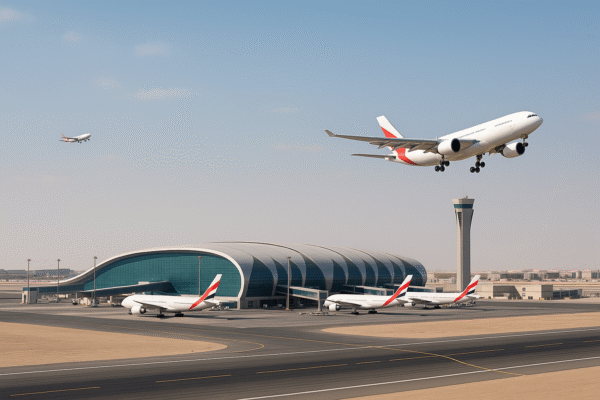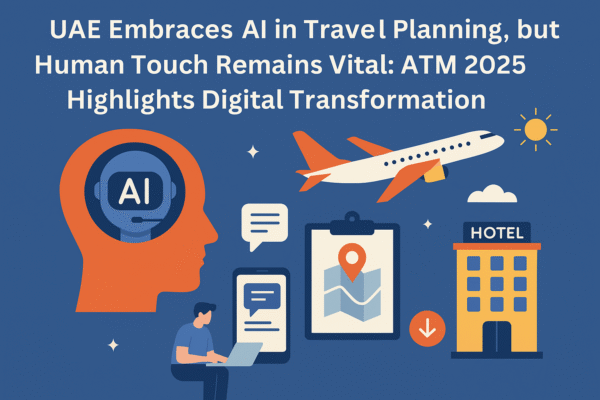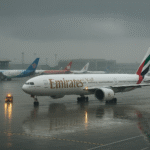The UAE’s travel and tourism sector is witnessing a paradigm shift, with Artificial Intelligence (AI) now playing a central role in how travelers plan and book their journeys. According to recent insights shared at the Arabian Travel Market (ATM) 2025 in Dubai, over 61% of travelers in the UAE now rely on AI to organize all aspects of their trips—significantly outpacing the 48% global average. As AI continues to integrate deeper into consumer behavior, this percentage is projected to rise further in the coming years.
ATM 2025 served as a crucial hub for exploring how AI and digital transformation are reshaping the global tourism ecosystem. Industry leaders, tech innovators, and tourism stakeholders gathered in Dubai to discuss the delicate balance between automation and authenticity. The consensus? While AI improves efficiency and personalization, it must serve to enhance—not replace—the human connection that defines hospitality.
🤖 AI: The New Travel Companion for UAE Tourists
Recent data from ATM 2025 revealed that nearly six out of ten travelers globally now use AI in some aspect of their travel planning. In the UAE, the number is even higher, with over 21% having used AI during their most recent trip. These tools are especially popular among digital-native travelers who prefer instant, curated travel suggestions powered by data analytics and machine learning.
From personalized itinerary recommendations to seamless bookings, AI-driven platforms are changing how UAE residents and tourists approach travel. Leading travel agencies and tourism boards are integrating AI chatbots, virtual concierges, and intelligent booking engines to offer faster, more personalized service.
🏨 AI-Powered Hospitality Meets Personalized Experiences
At the core of the AI movement in tourism is SynXis Concierge AI, a generative AI tool developed by Sabre Hospitality. The solution delivers real-time, context-rich responses to guest queries, creating a more engaging and informative experience for travelers. This reduces reliance on staff for routine questions and allows hotel teams to dedicate more time to meaningful interactions with guests.
Meanwhile, the UAE’s own hospitality leaders are not far behind. Miral’s advanced AI concierge system, now active at Yas Bay Waterfront, Ferrari World Abu Dhabi, and other attractions, uses visitor behavior and preferences to suggest custom experiences—ranging from dining to rides to retail. These enhancements are part of a broader trend to integrate intelligent systems into every aspect of a tourist’s journey.
Amy Read, VP of Innovation at Sabre Hospitality, spoke at ATM 2025 about the role of innovation in enriching guest experiences. “Technology should not dilute the human connection,” she said. “Instead, it should empower hospitality teams to focus more on moments that truly matter.”
🧳 AI’s Expanding Role in the MICE Sector
The Meetings, Incentives, Conferences, and Exhibitions (MICE) segment is also reaping the benefits of AI. With the global meetings market projected to surpass USD 2.3 trillion by 2032, automation is being leveraged to streamline operations. AI tools assist in venue sourcing, multilingual content translation, and tailoring event experiences to boost attendee engagement.
For UAE-based event planners, AI provides new levels of control and customization. Organizers can now analyze past data to predict attendee behavior, tailor content to audience segments, and use predictive analytics to reduce costs and maximize impact.
Despite these advancements, experts caution against excessive reliance on technology. “Authenticity and genuine interaction remain vital, especially in the high-touch segments of tourism like MICE and luxury travel,” noted several speakers during ATM panels.
🌱 Responsible Innovation: Keeping Humanity at the Center
One of the major themes at ATM 2025 was “Responsible Innovation.” Danielle Curtis, Exhibition Director of Arabian Travel Market, emphasized the need to adopt technology that enhances—not replaces—personal interaction.
“The most effective tools are those that respect the human experience,” Curtis stated. “We must design travel tech that empowers staff, personalizes guest experiences, and responds to real-world needs, not just trends.”
With the UAE positioning itself as a global hub for smart tourism, ensuring a balanced approach to tech deployment will be crucial. From luxury resorts to budget travel platforms, the focus is shifting toward tech-for-good—tools that support sustainability, accessibility, and inclusion.
🌍 ATM 2025 Breaks Records, Sets the Stage for 2026
Arabian Travel Market 2025 saw an unprecedented 26% increase in the number of tech products showcased. Over 55,000 industry professionals from 166 countries participated in the four-day event, underlining Dubai’s status as a central node in the future of global travel.
Looking ahead, ATM 2026 (scheduled for May 4–7, 2026) will continue to explore the intersection of AI, innovation, and human-centered design in tourism. The event promises to spotlight how emerging technologies—ranging from AI to augmented reality—can be responsibly implemented across leisure, business, and eco-tourism sectors.
📌 Conclusion: Future Travel in UAE Is AI-Assisted, but Human-Led
As the UAE leads the region in digital transformation across the tourism landscape, it remains clear that travelers value convenience powered by AI—but not at the expense of the warmth, empathy, and cultural connection that only humans can provide.
Travel and hospitality businesses across the UAE are now challenged to combine the best of both worlds: technological efficiency and emotional intelligence. With this dual approach, the nation is poised to redefine modern travel—where every journey is both smart and soulful.
For more travel news like this, keep reading Global Travel Wire








